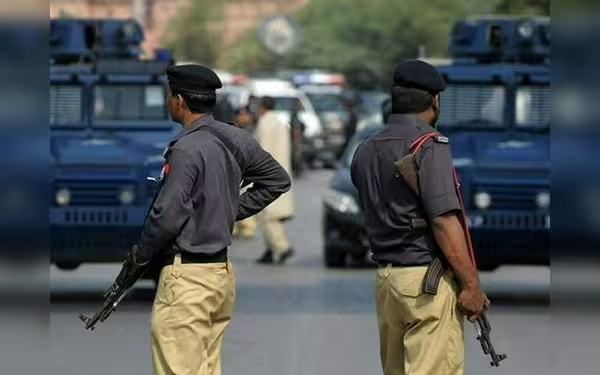Saturday, November 16, 2024 08:38 PM
Doctor Killed in Fake Police Shootout in Umerkot, Pakistan
- Doctor accused of blasphemy killed in staged shootout.
- Inquiry reveals police involvement in custodial death.
- Local clerics celebrated accused officers after the incident.
 Image Credits: brecorder
Image Credits: brecorderInquiry reveals doctor killed in fake police shootout amid blasphemy accusations in Umerkot, raising serious concerns about justice in Pakistan.
In a shocking turn of events, a recent inquiry has revealed that a doctor accused of blasphemy was killed in a fake police shootout in Pakistan. This incident has raised serious concerns about the safety of individuals facing accusations in a country where blasphemy laws are often misused. The doctor, Shah Nawaz, was working in Umerkot, a town in southern Pakistan, when local clerics accused him of blasphemy due to a Facebook post. Nawaz claimed that the post was made on an old account that had been hacked, a statement supported by his family.
Following the accusations, violent protests erupted in the area, led by local clerics. These protests escalated to the point where police stations were attacked, and police vehicles were set ablaze. In a desperate attempt to clear his name, Nawaz surrendered to the police after being assured that he would have the opportunity to prove his innocence. Tragically, instead of receiving protection, he was killed in what was later determined to be a staged shootout.
Sindh's home minister, Zia Lanjar, announced the findings of the inquiry during a news conference, stating, "An inquiry has found that it was a fake shootout. It was a custodial death." This statement highlights the grave nature of the situation, as it implicates several police officers, including a deputy inspector general and other senior officials. The inquiry report, which spans 31 pages, details the events leading to Nawaz's death and calls for criminal proceedings against those involved.
In a disturbing twist, local clerics and some politicians celebrated the accused officers, showering them with rose petals and garlanding them at public events. This behavior has drawn criticism from human rights groups, who argue that it reflects a troubling attitude towards accountability and justice in cases involving blasphemy accusations.
The implications of this incident extend beyond the tragic loss of life. It raises critical questions about the treatment of individuals accused of blasphemy in Pakistan and the role of law enforcement in ensuring justice. The government has stated its commitment to combating extremism, but incidents like this highlight the urgent need for reforms to protect the rights of all citizens, regardless of the accusations they face.
As the inquiry unfolds and the public demands accountability, it is essential for society to reflect on the broader implications of blasphemy laws and the need for a fair judicial process. The tragic fate of Shah Nawaz serves as a reminder of the importance of safeguarding human rights and ensuring that justice prevails in all circumstances.













